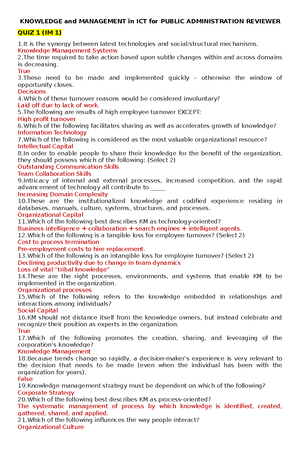- Information
- AI Chat
Was this document helpful?
Parliamentary Control Over Administration
Course: Theory & Practice of Public Administration (PA 56)
458 Documents
Students shared 458 documents in this course
University: Aklan State University
Was this document helpful?

PARLIAMENTARY CONTROL OVER ADMINISTRAION
INTRODUCTION
In all systems, parliamentary or presidential, control of the administration by the
legislature is important. Legislature is most effective and real instrument of controlling
public Administration. It is feared that if control over public administration is relaxed,
administration will try to act arbitrarily and would become very corrupt. As such,
legislative control is very important to prevent irresponsibility and to avoid the evils of
public Administration. Io modern democratic states, people exercise control over
administration through their elected representatives (members of the legislature) the
legislature looks after the work of the government on their behalf. The legislature is the
source of all administrative authority. It is the legislature which lays down the public
policy – the work programme. It decides the nature and scope of administration
In a parliamentary system, such as India and Great Britain, it is primary important
because all states activities emanate from the legislature. The cardinal principle of
parliamentary system is the responsibility of the executives to the legislature. The
executive therefore, cannot afford to be irresponsible. He has to be responsible for each
an every act of his civil servant. The responsibility of administration is thus indirect
because it is enforced through the executive. The official cannot be called to the floor of
the House to explain his act. It is the minister who shoulders the responsibility for the
administrative acts of the department. If he is unable to satisfy parliament, he has to quit
office. Sometime, the entire ministry may have to quit the office because ministerial
responsibility in a parliamentary system is collective. Thus, we find that the legislatures
control on administration is indirect, i.e.
3.1 Law Making Process
The legislature makes the law which determines the organisation, functions and
procedures of public administration. A new department may be created to give effect to a
particular law enacted by the parliament. However, the legislature control through the
law making process is very general. It is difficult, if not impossible, for the legislature to
attempt to lay down in details the administrative procedures to be followed. Generally,
the task of laying down the detailed rules is left to the executive who is known as
Delegated legislation. But the executive makes the rules within the ambit of its authority,
delegated by the legislature. It cannot transgress the limits of its authority. Sometimes,
the legislature may require these rules to be placed before it for approval. In every
democracy, there is a committee on delegated legislation to examine these rules and
report back to the house about their authenticity. Just as the legislature may create new
powers and functions, similarly it may make changes in them. It may also give the





